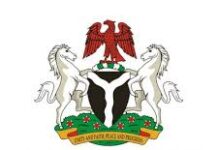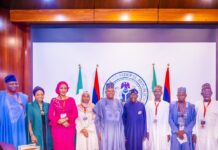Fuel Subsidy to Gulp N417b in 2020 -PPPRA
POLITICS DIGEST – The Petroleum Products Pricing Regulatory Agency (PPPRA) has revealed that about N450 billion was voted in the 2020 budget by the Federal Government for the payment of fuel subsidy, though the nation’s subsidy on petrol may be around N417 billion in 2020.
Coming at a time when the government said since it closed the borders, partly to eradicate smuggling of petroleum products and other goods, the action had reduced Nigeria’s daily petrol consumption to about 52 million litres, about N33 billion may be unaccounted for on petrol subsidy alone.
In 2019 budget, about N305 billion was budgeted for petrol subsidy, but instead of decreasing based on prevailing realities, the figure for next year increased by a whopping N145 billion. Though the Federal Government lowered oil price benchmark from $60 per barrel in 2019 to $57 in 2020, an indication that the price of gasoline may rather decrease, it, however, increased subsidy allocation.
Though the price of gasoline in the international market fluctuates, the latest figures from the PPPRA show that Nigeria will spend N1.1 billion daily subsidising the product.
According to PPPRA latest data, petrol under-recovery is now N21.22 Kobo per litre. Gasoline price at the international market averaged $582.80 per metric tonne. The landing cost and Expected Open Market Price (EOMP) averaged ₦146.85/litre and ₦166.22/litre for Nigerian National Petroleum Corporation (NNPC) imports only.
As the borders remain closed, while the Ministry of Petroleum Resources, headed by President Buhari, is set to eradicate smuggling of petrol in the next four years, it is expected that Nigeria’s daily consumption would reduce, but the budgetary allocation for a subsidy does not reflect the reality.
The Executive Secretary of the PPPRA, Abdulkadir Saidu, explained that due to the cost of financing components, in-built in other marketers’ imports landing cost and EOMP averaged N149.86/litre and N169.23/litre.
The weekly data, which covers 28th November 2019 to 4th December 2019, show that the Central Bank of Nigeria (CBN) official exchange rate and the parallel market rate were stable during the period. The CBN rate averaged N306.97/$ while the naira at the parallel market averaged N360.00/$.
The agency put the total petrol receipt at 473,602 million litres, automotive gas oil (AGO) 68,366 million, and Aviation Turbine Kerosene (ATK) 20,327 million litres.
Meanwhile, Attorney-General of the Federation and Minister of Justice, Abubakar Malami has decried illicit financial flows, lamenting that Nigeria has lost over $400 billion, stolen and expatriated by corrupt leaders and their foreign accomplices, including multinational companies.
Malami made the disclosure in his speech as head of the Nigerian delegation to the eighth session of the conference of states parties to the United Nations Convention Against Corruption in the United Arab Emirate (UNCAC), taking place from 16thto 20th December 2019.
Read Also:
A statement by Dr. Umar Jibrilu Gwandu, the Special Assistant on Media and Public Relations, office of the AGF, in Abuja yesterday said the minister was concerned about the menace of illicit financial flows which go through the financial systems annually, particularly from developing to developed economies.
“The quantum of these illicit flows which are majorly proceeds of crime undermines local currencies, constitutes a threat to the economy, and enhances the risk of huge amounts of money flowing into channels such as organized crimes and terrorism.”
He said the government had taken drastic measures to address the problem in order to ensure that Nigeria’s financial institutions are not used as conduits for these illegal transactions.
“To dissuade the perpetrators of this anomaly, including financial institutions who act as enablers, state parties should ensure that illicit financial flows, when tracked, do not remain in the custody of enabling financial institutions, but should be transferred into escrow account, preferably in development banks pending return to countries of origin,” he said.
According to the minister “bad eggs among public officials have been compromised by multinational companies and our resources looted and diverted through inflated contracts.”
Malami noted that with the return of democratic governance in 1999, the country had recorded significant progress in the fight against corruption.
“We have enacted legal frameworks and established several dedicated institutions focused on preventing and combatting diverse manifestations of corruption,” he told the summit.
He said the Federal Government had established numerous policies to promote transparency and accountability and prevent corruption before it occurs through the institution of mechanisms that ensure data–policy nexus and inter-agency coordination, and established robust access to information regimen in the Freedom of Information Act, ensuring increased transparency and accountability.
“We have committed to the open government partnership and beneficial
ownership disclosure and adopted a roadmap for implementation. A few days ago, we launched two significant initiatives: the open treasury initiative which establishes a financial transparency portal to keep the public informed about financial transactions within a specified threshold, on a daily basis, and a pilot beneficial ownership register focused on the extractive sector,” he said.
Malami told the conference that in the realisation of the necessity of effective criminal justice system for investigating and sanctioning corruption, Nigeria was actively implementing a justice sector reform strategy covering issues such as international cooperation mechanisms, mutual legal assistance and reform of the criminal justice system.
“Proceeds of corruption and illicit financial flows constitute a huge chunk of resources needed for sustainable development but are regularly diverted from victim states,” he said.
The minister, therefore, called for the simplification of evidentiary requirements and other mutual legal assistance procedures as appropriate to enhance international cooperation under the convention.
















